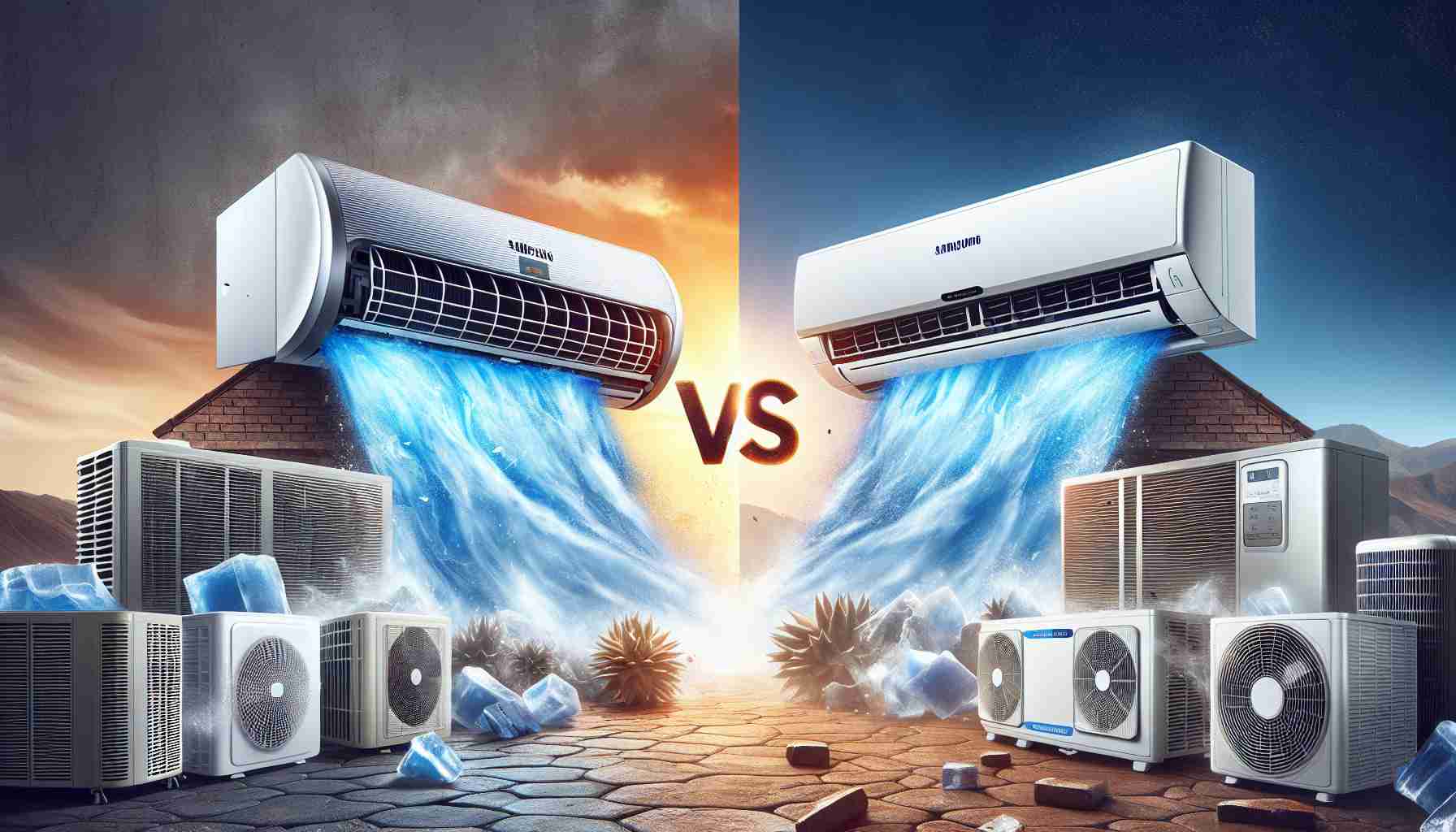The scorching summer heat beckons the question of investing in an efficient and reliable air conditioning solution. Standing tall in the realm of home cooling, Samsung and Whirlpool offer an array of air conditioners designed to meet the demanding needs of hot summer days with their highly efficient, reliable, and performance-driven features. Choosing between these seasoned contenders, Whirlpool and Samsung, could be crucial for your seasonal comfort.
Deciding between Whirlpool and Samsung can be akin to selecting between legacy and innovation. Both brands have demonstrated their prowess in the air conditioner market with continuous improvements in technology and a steadfast dedication to consumers’ cool respite during the intense summer heat.
We endeavor to assist you in unraveling the intricacies of various models to aid in finding the air conditioner that aligns with your desires, whether that includes energy conservation, silent operations, or the newest tech on the market. From the selections of both Whirlpool and Samsung, the ideal cooling solution for your home is within reach.
Explore the Premium Cooling Solutions
Take a moment to immerse yourself in the details of the Whirlpool 1.5 Ton Split AC. Its standout feature is the Intellisense inverter technology, which intuitively modulates its functionality to maintain a comfortable ambiance while maximizing energy efficiency. Owners can select from four distinct cooling modes to tailor the atmosphere to their liking. The machine’s durability is supported by a robust copper condenser coil, ensuring effective cooling for sustained periods with minimal upkeep. This AC not only comes with a comprehensive warranty policy but also boasts attributes like the 6th sense technology and a dust filter, promoting a hygienic environment and energy savviness with a 5-star energy rating.
Your home’s aesthetic won’t be compromised, thanks to the AC’s sleek design, which subtly camouflages the digital display. By utilizing the eco-friendly R32 refrigerant, this air conditioner also lessens your ecological footprint. When you opt for the Whirlpool 1.5 Ton Split air conditioner, expect a resonant blend of comfort and sustainability at a value of Rs 37,999.
Specifications:
– Brand: Whirlpool
– Capacity: 1.5 Tons
– Cooling Efficiency: 5.1 Kilowatts
– Key Features: 6th Sense, 4 in 1 Convertible
– Dimensions: 23D x 100W x 29.5H Centimeters
Advantages:
– Competent cooling mechanism
– High energy savings
– Quality construction
Disadvantages:
– Possible challenges with customer service
Now that the intricacies of this Whirlpool masterpiece have been unfurled, the question of where Samsung stands in this battle of the chill remains. Each brand brings its strengths to the fore in a contest that ultimately serves the end user – you. The choice is yours to make as both giants of industry await your verdict.
Key Questions and Answers:
– What factors should be considered when choosing between Samsung and Whirlpool air conditioners? Potential buyers should consider energy efficiency ratings, cooling capacity, technological innovations, reliability, customer service, price, and warranty.
– How do Samsung and Whirlpool compare in terms of innovation? Samsung is often recognized for integrating cutting-edge technology into its products, including smart connectivity and unique design elements. Whirlpool tends to emphasize practicality and intuitive controls such as the 6th Sense technology.
– What are common challenges or controversies associated with these brands? Controversy may arise from the durability of the air conditioners, efficiency over time, and the adequacy of customer service after purchase. For Whirlpool, one noted challenge is with their customer service.
– Is there an environmental advantage to choosing one brand over the other? Both brands have models that use R32 refrigerant, which has a lower global warming potential than older refrigerants. However, Samsung may offer more models with eco-friendly features.
Advantages and Disadvantages:
For Whirlpool:
– Advantages: Energy efficiency with a 5-star rating, robust construction with a copper condenser coil, adaptable cooling modes, and the inclusion of Intellisense inverter technology for automatic adjustment of cooling power.
– Disadvantages: Some customers report challenges with Whirlpool’s customer service, which could affect the overall satisfaction and ease of resolving issues.
For Samsung:
– Advantages: Samsung typically offers the latest in smart technology, allowing integration with home automation systems. They often push for sleek design and user-friendly interfaces.
– Disadvantages: Not provided in the article, but in general, Samsung’s advanced technology might come at a premium price compared to Whirlpool, and there might be cases where their innovative features require a learning curve for less tech-savvy users.
Related Links:
– For more information about Samsung’s range of air conditioners, visit their official website Samsung.
– To learn more about Whirlpool’s air conditioning solutions, visit their official website Whirlpool.
When considering these factors, it is imperative that consumers weigh the pros and cons tailored to their specific needs and requirements to make an informed decision about which air conditioner brand would best suit their summer cooling needs.
